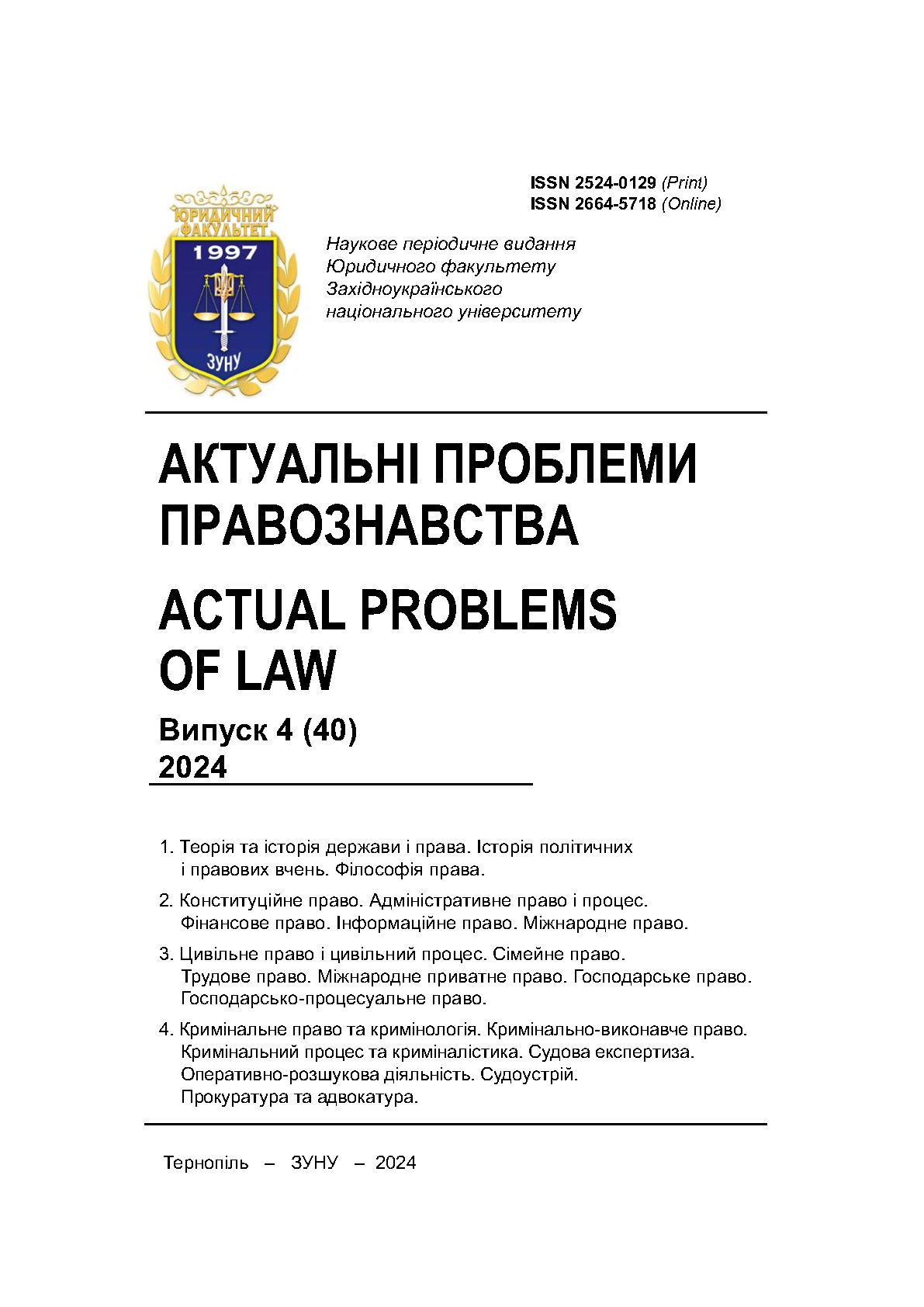The potential of participatory democracy in the conditions of the information society
DOI:
https://doi.org/10.35774/app2024.04.006Keywords:
participatory democracy, potential, information society, digital participation, digital innovation, electronic voting, artificial intelligence, blockchain, crowdsourcingAbstract
The article is devoted to clarifying the potential of participatory democracy in the conditions of the information society.
It is suggested that the potential of participatory democracy in the conditions of the information society be recognized as a set of opportunities caused by the development of the Internet and digital technologies, the use of which leads to the effective practical implementation of the ideals and values of participatory democracy.
It has been proven that participatory democracy has great potential in the information society, which consists in the application of certain digital innovations covering a wide range of new technologies and methods that transform society and bring it to a new progressive level.
It was revealed that the potential of participatory democracy is manifested in such digital innovations as electronic voting, artificial intelligence, blockchain, crowdsourcing.
It is argued that the use of these digital innovations has a positive effect on the development of participatory democracy through the creation of favorable conditions for civic activity; uniting a large number of citizens around common goals; bringing society closer to the government; reduction of long-term costs of financial, labor and time resources; improving political transparency, control and security. However, each of them has its own challenges and risks, overcoming which requires solving a number of technical, legal and ethical issues.
References
Basic Documents UNESCO 1989-1995. News Communication Strategy. Document C II-96/WS/2. Paris, UNESCO, 1995. 109 p. [in English]
Holoveshkina, K. (2010). Problema nerivnosti v umovakh informatsiynoho suspilstva [The problem of inequality in the information society]. Informatsiyne suspilstvo i novi vymiry kultury: materialy dopovidey Information society and new dimensions of culture: materials of reports. Ostroh: Natsionalnyy universytet «Ostrozka akademiya». Retrieved from http://inf.oa.edu.ua/golovesh.html [in Ukrainian]
Proskurina, O. (2005). Informatsiyne suspilstvo: mozhlyvosti i polityko-kulʹturna realnist stanovlennya v Ukrayini [Information society: possibilities and political and cultural reality of formation in Ukraine]. Hrani Faces, 3, 126-129 [in Ukrainian]
Kartunov, O. V., Marukhovskyy, O. O. (2012). Informatsiyne suspilstvo: analiz politychnykh aspektiv zarubizhnykh kontseptsiy [Information society: analysis of political aspects of foreign concepts]. Kyiv: Universytet ekonomiky ta prava «KROK» [in Ukrainian]
Masuda, Y. (1985). Computopia. The Information Technology Revolution. Oxford Retrieved from http://connection.ebscohost.com/c/articles/12608885/vision-computopia [in English]
Menshenina, A. Ye. (2014). Osoblyvosti funktsionuvannya demokratiyi v informatsiynomu suspilstvi [Peculiarities of the functioning of democracy in the information society]. Naukovyy chasopys NPU imeni M. P. Drahomanova. Seriya 22: Politychni nauky ta metodyka vykladannya sotsialno-politychnykh dystsyplin The scientific journal of the NPU named after M. P. Drahomanova. Series 22: Political science and methods of teaching socio-political disciplines, 473-479 [in Ukrainian]
Nikitenko, L. O. (2020). Kraudsorsynh yak instrument partysypatyvnoyi demokratiyi [Crowdsourcing as a tool of participatory democracy]. Chasopys Kyyivskoho universytetu prava Journal of the Kyiv University of Law, 2, 133-138 [in Ukrainian]





